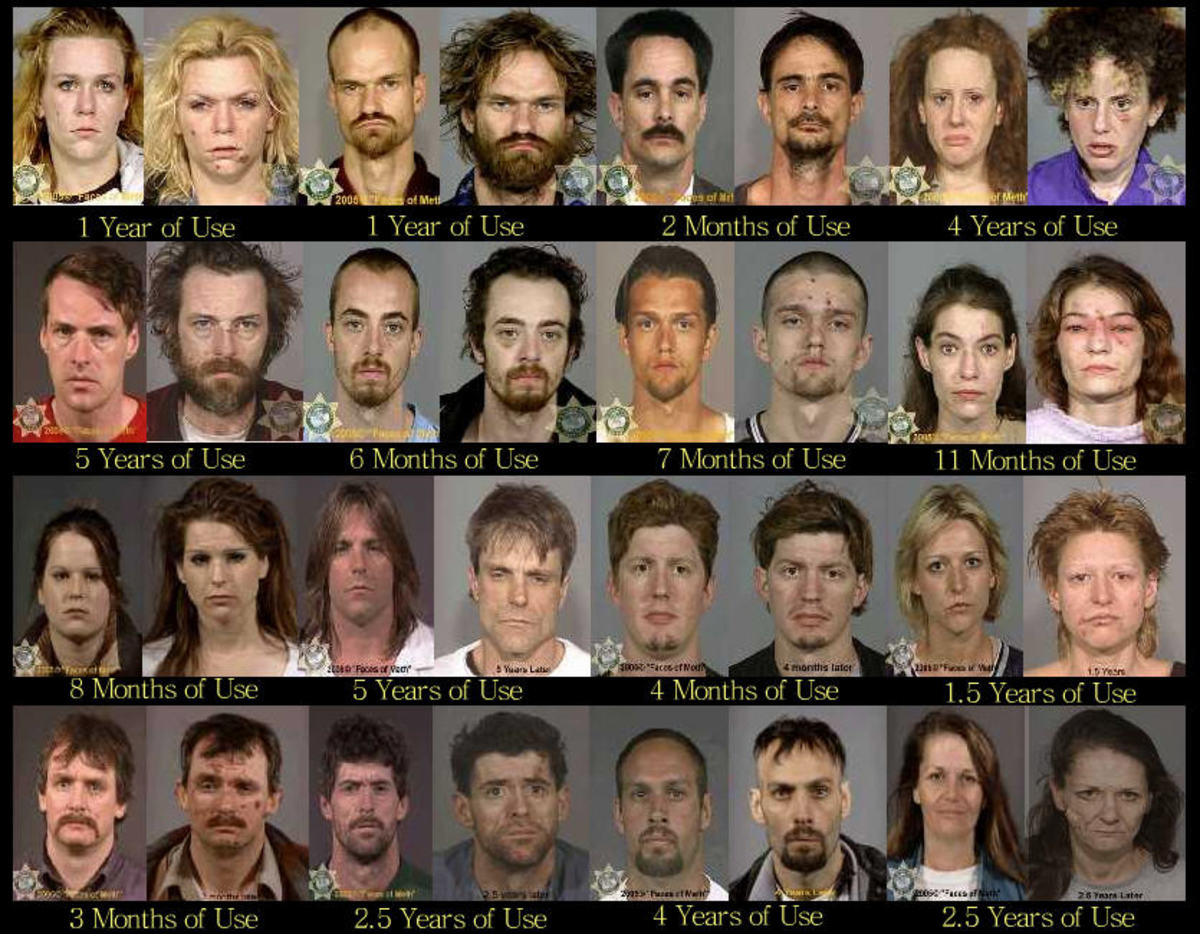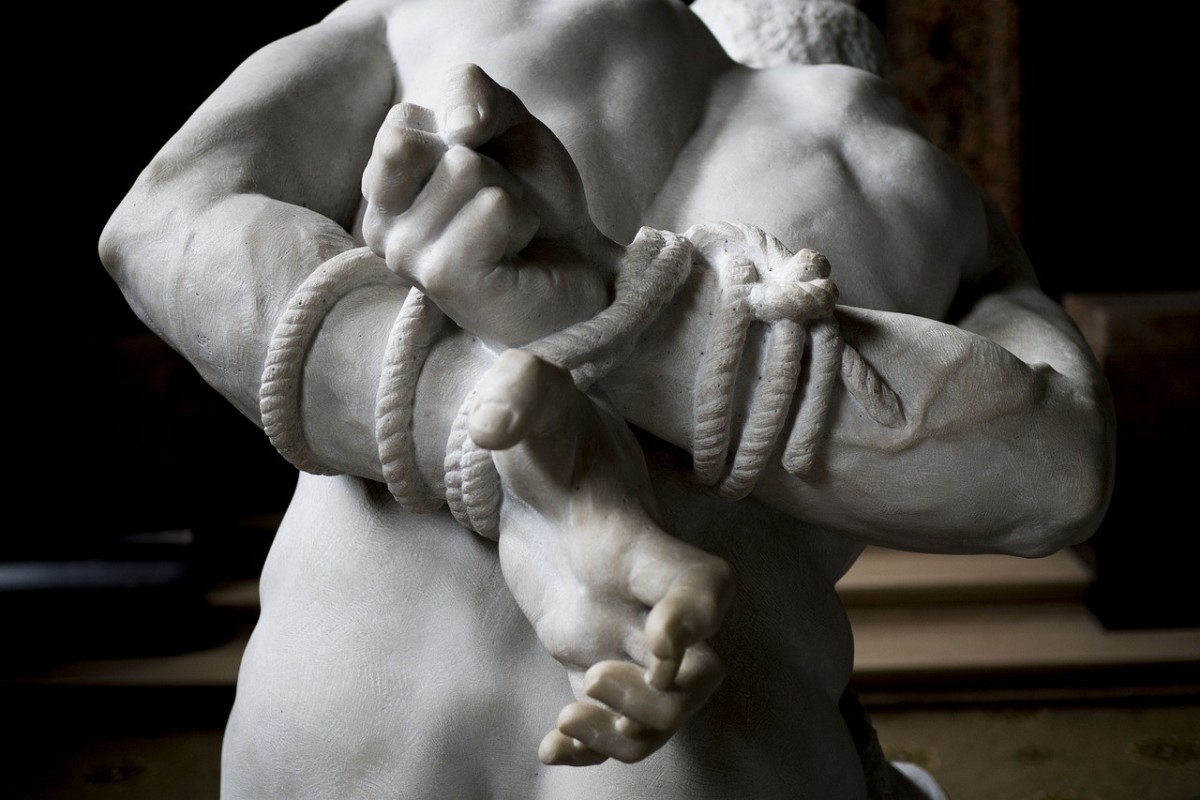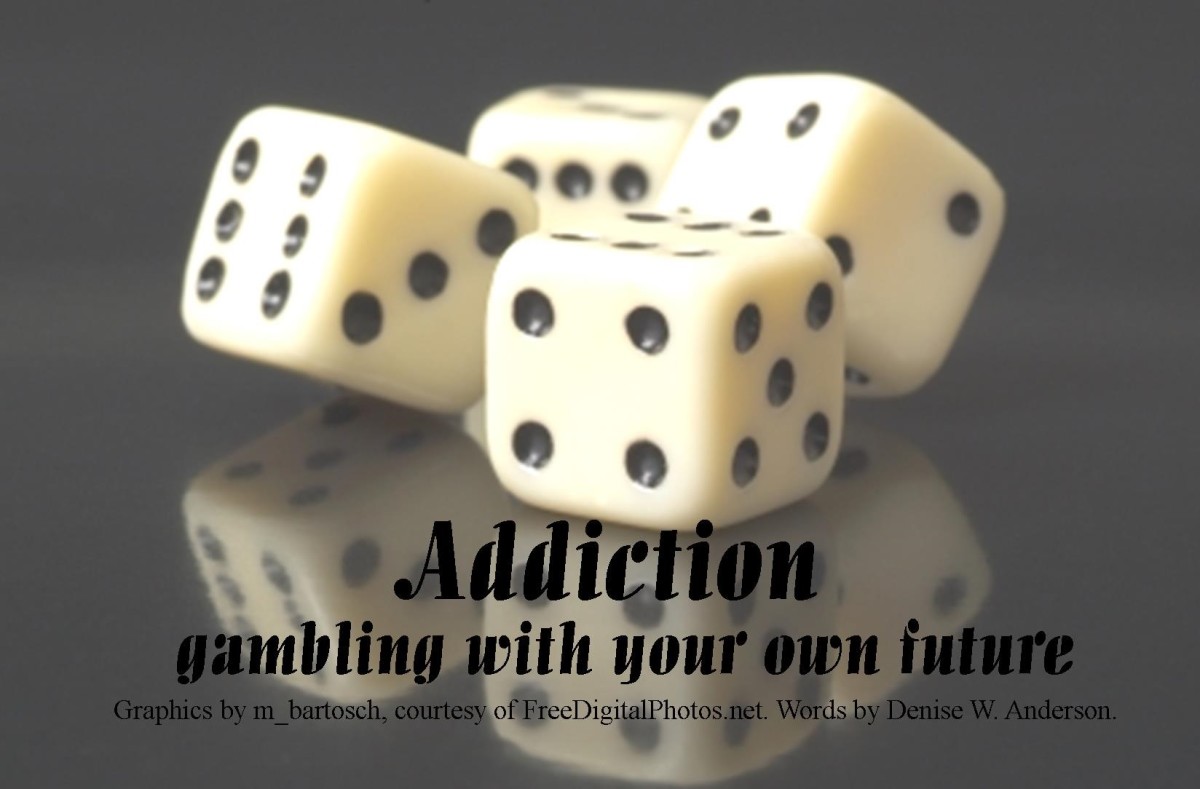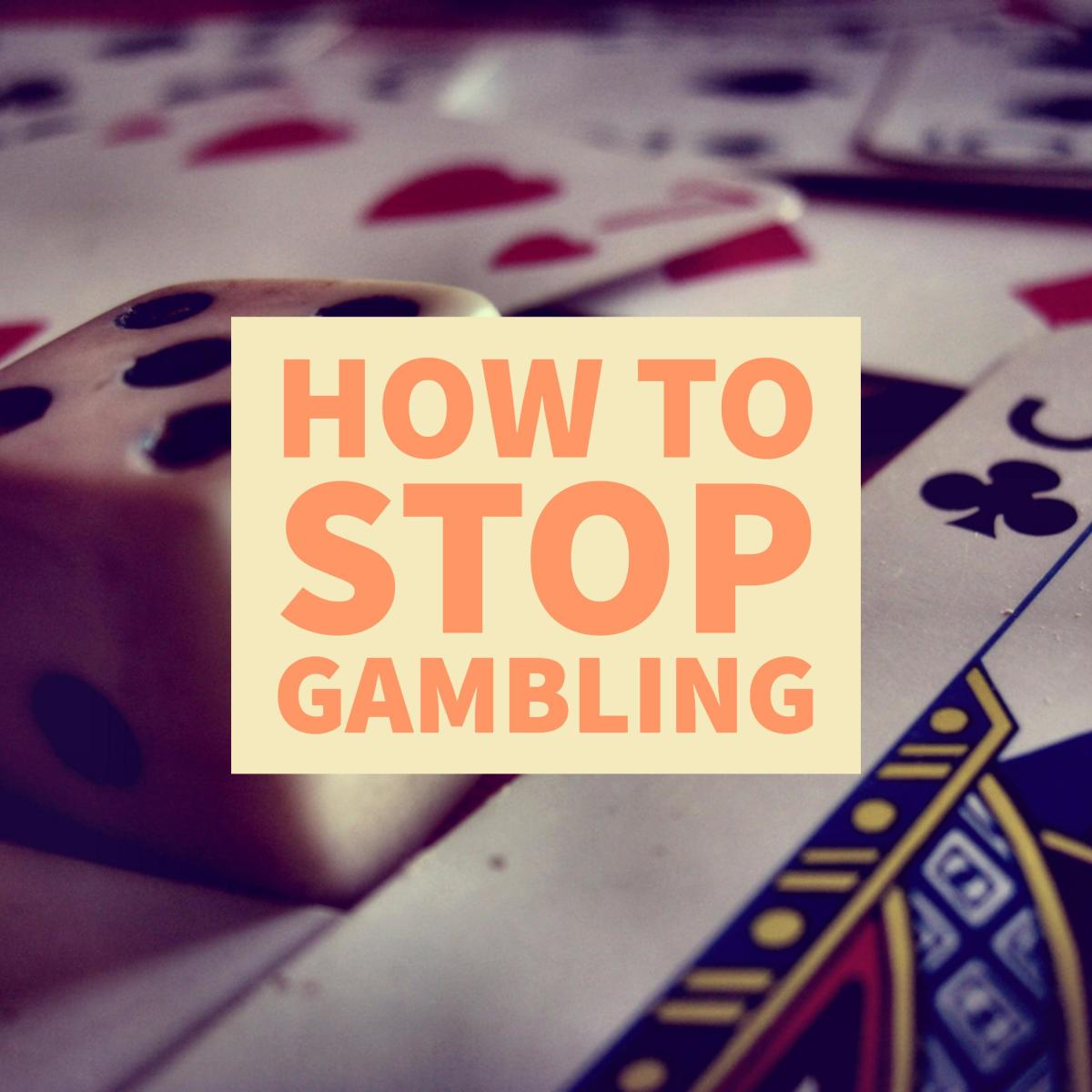How to Recover From an Addiction
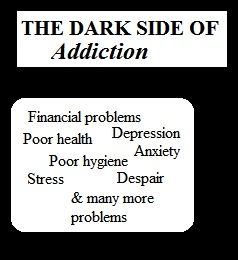
What is addiction?
It refers to any uncontrollable behaviour towards alcohol consumption, smoking, gambling, drugs of abuse, excessive caffeine intake, and any other harmful habit if done out of control. Addicts have no control over their urges and normally compulsively act them out just to relieve the feelings, usually, in a careless or unsafe manner. This leads to a lot of regret especially when they feel that they have risked their health by exposing themselves to harmful health habits, wastage of money, can affect one's morals, personal affairs with friends, family and relatives. These problems can eventually lead to depression, making the addict feel worthless and hopelessness. To overcome this negative feeling, most resort to the same old bad habits so as to distract themselves from the reality. However, these habits just drive them into more despair, especially by affecting their financial stability and being in trouble with law enforcers in case of drug abuse. These habits thus turn out to be repetitive and hence, addiction sets in.
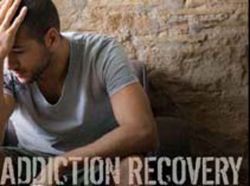
How Does One Become Vulnerable To Addiction?
- People who had an abusive or hostile childhood upbringing tend to solve their problems or stresses in life with negative perceptions or ideas and hence can also easily fall victim to addiction.
- Being jobless or idle.
- People who have low self esteem.
- Peer pressure.
-Experimenting with drugs.
-Financial constraints can lead to one experimenting with drugs or alcohol to forget problems hence falling into an addiction.
-Users of alcohol can try to experiment with drugs to get a quick 'high' hence falling prey to addiction.
-Poverty can lead to others experimenting with drugs or alcohol to escape problems and this can also lead to an addiction.
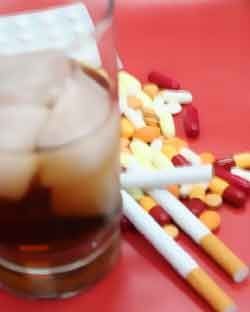
Signs and Symptoms of Addiction
- Depression
- Anxiety, especially due to fear of losing a job or being in trouble with the law enforcers.
- Financial instability caused by spending a lot of cash to support the addiction problem.
- Withdrawing from family life, academic work or career.
- Lack of interest in social, occupational, or recreational activities due to preoccupation with the behaviour.
- Poor health and hygiene.
-Stained teeth in smokers.
- Violent behaviour.
-Stealing from others, in order to get more cash to finance the addiction problem.
-Those who abuse drugs and share needles can contact HIV/AIDS or even Hepatitis.
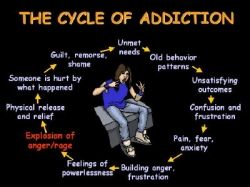
The Addiction Cycle
Pain agent - This the usual discomfort that a normal person feels when lonely, stressed, angry, anxious, fearful, etc. An addict is however unable to tackle such problems in a healthy manner.
Dissociation - At this stage, the addict tries to dissociate himself from reality of his or her own problems.
Trance state - The sex now disconnects his mind from reality.
Preoccupation - The addict starts to create imaginations about the good effects of the habit in his or her mind.
Ritualization - The good feelings about the habit are intensified.
Compulsivity - This is the stage of acting out the habit. The inner tension is thus released.
Despair - After acting out the habit. The intensely good feeling is suddenly replaced by despair. They now feel hopeless, sad and depressed. The cycle is thus repeated as a way to cure this negative feeling, not knowing that they are now addicted to the behaviour.
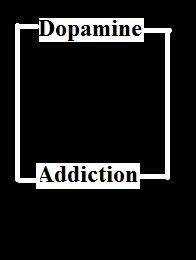
The Dopamine Link to Addiction
The major roles of dopamine in the body are dopamine affects are movement of limbs, cognition, feelings of pleasure, and motivation. It's one of the neurotransmitters in the brain though also found in other parts of the body. Addiction is believed to release dopamine in the brain, hence, the pleasurable feeling one has at that moment. The same dopamine is released, mimicked or it’s recycling affected by certain drugs. The brain can however down regulate its release on repetitive release. Hence, less and less dopamine is release by increased repetitive addiction behaviours or by drugs such as cocaine. One would thus require higher doses of the drug or more intense behavioral change. A lack of enough dopamine release in the brain leads to low mood. This is where addiction sets in. An addict is thus unknowingly trying to seek ways to release more dopamine in the brain to increase pleasure. In fact, Levodopa is a drug used to Parkinson's disease and one of its side effects is a people getting more addicted to gambling, since it increases dopamine levels in the brain.
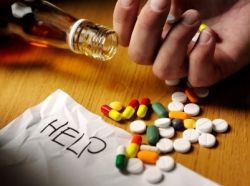
Steps Towards Recovering From An Addiction:
1.) Abstain entirely from the habit for a minimum of 30 days. This helps change the brain chemistry, hence better response to thoughts and urges.
2.) If addicted to drugs or alcohol, enroll into a rehabilitation centre for specialized care.
3.) Learn to recognize negative or bad feelings and reassure yourself of being able to solve them in a healthier way. This is known as relabeling.
4.) Try reflecting on what you learnt from previous past mistakes of addiction in a way to curb repeating bad behaviours. This is known as reattribution.
5.) Turn your attention to positive and productive activities. This is known as to refocus.
6.) You will thus learn to avoid bad thoughts and feelings. This is known as to revalue.
7.) Positive habits, behaviours and recreational activities such as hiking should be repeated always as the will become a part of your life.
8.) If still having financial problems, seek financial advice.
9.) If still depressed and anxious, antidepressants may be prescribed. Seek medical advice.
10.) Seek medical advice if you believe to have contracted HIV/AIDS or Hepatitis. They can be tested for, treated and one can continue to live a normal life.
11.) Finally, spiritual guidance can nurture the soul and give you hope to life. Seek spiritual guidance from your church, a priest or pastor, or any church member.



